When the student is ready, the teacher will appear. When the student is truly ready, the teacher disappears. — Lao Tzu
What’s Lao trying to convey?
You are a student. You are also a teacher.
Learning new skills and acquiring appropriate cybersecurity domain knowledge is not limited to cracking an interview, job security or advancing the career.
Learning and sharing what you know is an attitude and way of life.
Half of the job is complete if you can motivate yourself. Achieving a gold standard certificate like CISSP requires self-study, dedication and discipline.
The 10 Japanese concepts are popular on the Internet for living a better life. I revisit these concepts from the lens of cybersecurity certification study.
1. Oubaitori (oh-buy-toe-ree)
Never compare yourself.
Many people ask me how long it takes to pass CISSP.
I had the same question. Some people have cracked CISSP in 2 weeks. It takes 3 to 6 months for most people. It took me more than a year and two attempts.
The reality is that the journey to pass any certification or learn any new skill is dynamic. Same destination. Different journey. You cannot compare your study timeline with anyone.
Learning is like planting a seed. For some, it sprouts early. For some, it takes time. But it sprouts for everyone as long as you give time and nutrition.
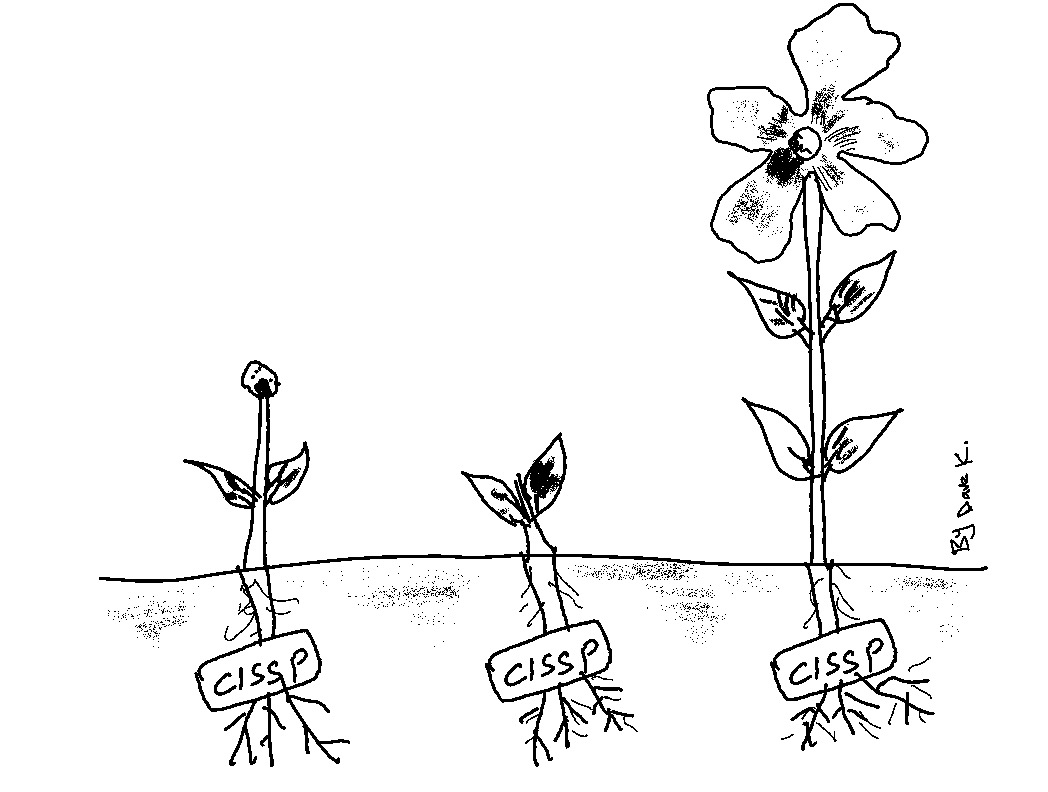
2. Kaizen (kai·zn)
Continuously improve.
As stereotypical as it sounds, there is always room for improvement.
Achieving certification does not mean the end of the study. It’s the beginning. I understood risk management for the CISSP exam. However, after passing the exam, I relearned risk responses with another context.

3. Wabi-Sabi
Embrace imperfection.
The Japanese philosophy acknowledges three basic tenets:
- Nothing lasts, nothing is complete.
- Accept your own flaws and those of others.
- Find beauty in imperfection.
Your vulnerability is a bridge between your inner (WABU, 侘ぶ) and outer world (SABU, 寂ぶ). Accepting the flaw is the beginning of learning.
English is my second language. The CISSP exams require a solid grip on English, such as double negative questions and practice in identifying keywords. I had to invest a reasonable amount of time learning words, their meaning and interpretations to understand the context of a question.
You have to think like a manager for the CISSP exam. My background is technical. So, I had a big learning curve to shift my paradigm from solving problems to fixing processes.
Imperfection finds new ways. Perfection is the dead end.CISSP is for slow readers.

4. Gaman
Have dignity during duress.
Muscles only grow when you break them with intense exercise. Hard times are the opportunity to build perseverance and strength.
After failing the CISSP exam after the first attempt, I didn’t want to study. However, I reminded myself that it’s not the end of the world. I follow a simple ritual to rejuvenate myself.
Disconnect from the Internet. Take a long walk. Relax. Have patience. Reflect. Start again.
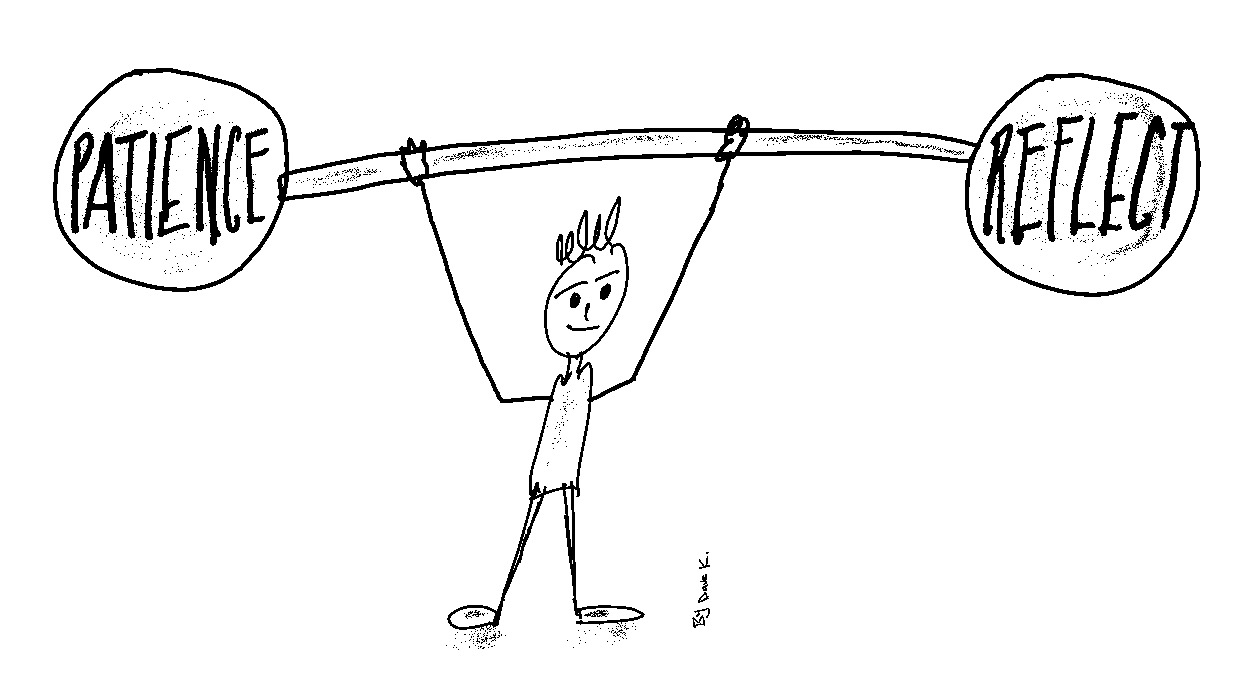
5. Ikigai
Know your reason for being.
People leave bed to chase their dreams, such as achieving CISSP. What makes you wake up after you pass CISSP?
Another certification?
What will drive your morning after that?
Knowledge without applying is like throwing a jumbo pizza in the bin. What’s the point of preserving the information if it’s not useful?
Ikigai is the intersection of what you know, what you love, who you are and what you do.

I shared my CISSP handwritten notes on the Internet in 2023. More than 3000+ learners downloaded from 60+ countries. Passing CISSP made me happy, but knowing that my notes are helpful to many worldwide gave me goosebumps!
The sharing experience and support from the cybersecurity community triggered a new mission and vision.
My Ikigai is to share my knowledge through digital sketches, articles and short films with simplicity, entertainment and minimalism to inspire people to learn cybersecurity.
Take your own time. Connect the dots. Discover your Ikigai. Start your mission today.
6. Shikita Ga Nai
Accept and let go.
This Japanese word relates to ancient Greek and Hindu philosophies.
“We cannot choose our external circumstances, but we can always choose how we respond to them.” – Epictetus
“You have a right to perform your prescribed duties but are not entitled to the fruits of your actions.” – Bhagavad Gita
You can study all the material available on the Internet. However, you never know how the exam will turn out. CISSP is an exam in which you will never feel confident. Even after completing the exam, you will have self-doubt.
That’s normal.
Whether you pass or fail. Accept the outcome. Just let it go.
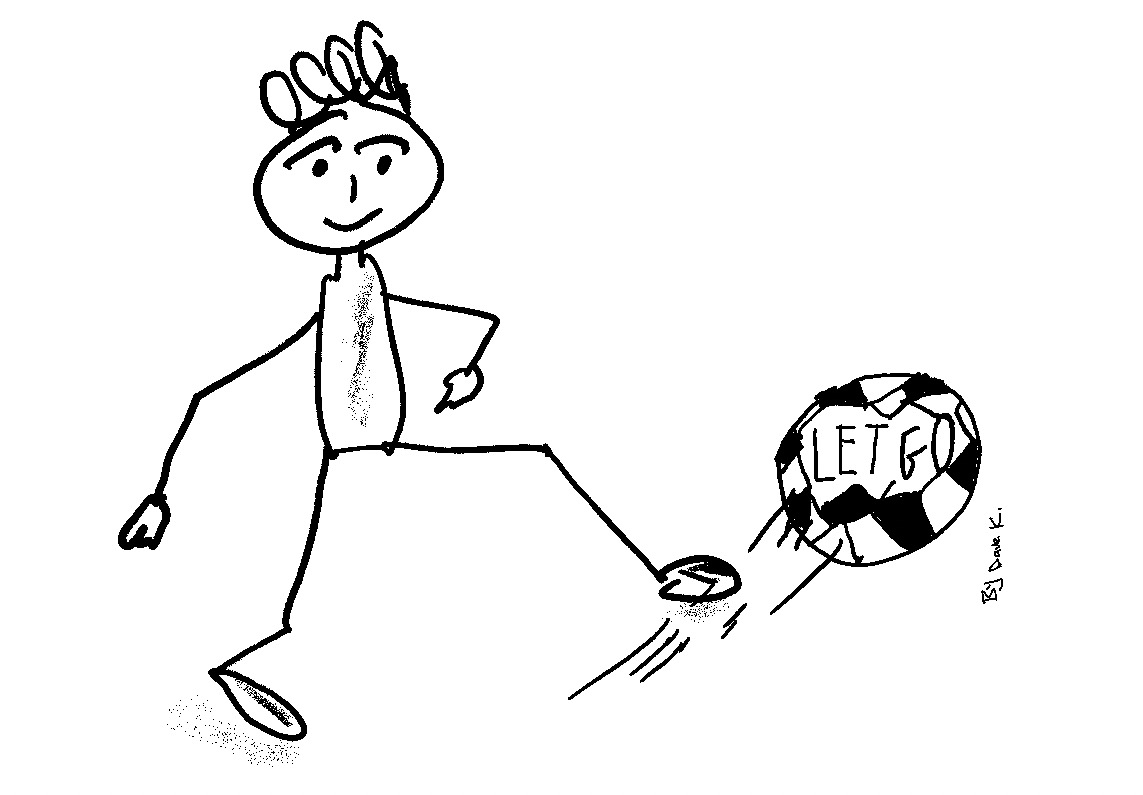
7. Shu-Ha-Ri
First learn, then detach and finally transcend. Shu-Ha-Ri originally belonged to martial arts. It’s about skill development and training. Understanding this concept opens your mind to go on the journey to becoming an expert and beyond.
There are three stages — learn, master and innovate.
SHU: Keep & Protect the traditionFocus on the fundamentals. Learn and respect traditional materials such as the official CISSP study guide. Famalise yourself with basic terminologies. What’s unknown to you will be known at the end of this phase.
HA: Break & TransformationLearn and understand concepts from various perspectives and methods. Bend some rules and expand your context. The Shu phase focuses on creating the sword. Ha, the phase is about sharpening it.
RI: Detach & TranscendPush your knowledge with creativity and innovation. I blend cybersecurity with cybersecurity with art, creative media, and visual storytelling.
Inspire from people and discover your Shu-Ha-Ri.
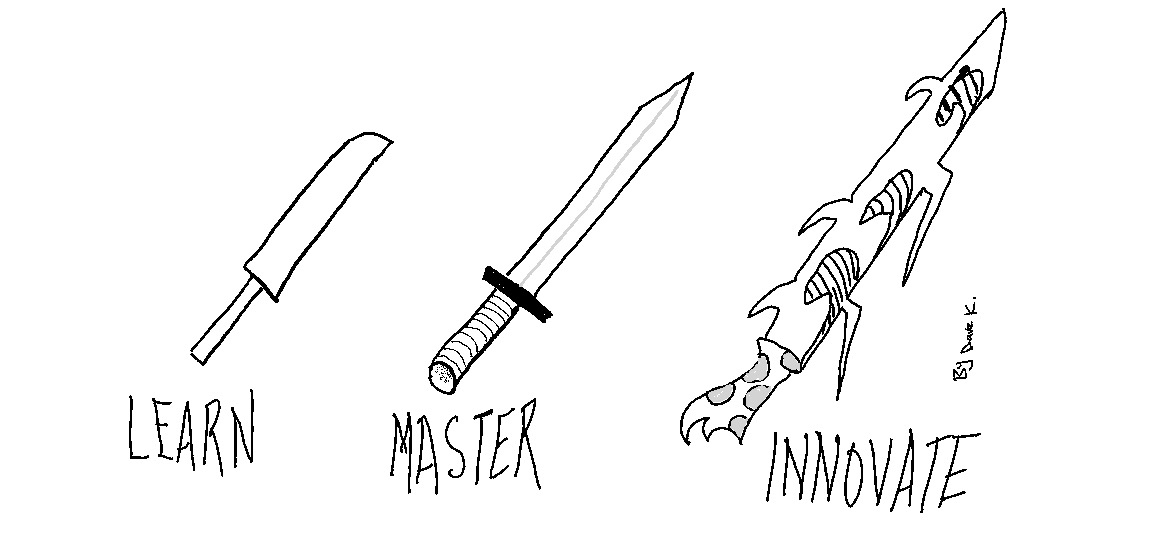
8. Kintsugi
Repair cracks with gold.
Kintsugi applies to broken pottery with golden or silver cracks. The end product still has cracks, but they are not normal ones. It’s golden. Therefore, it’s a metaphor that helps you to celebrate your limitations.
A lifelong learning mentality is gold.
Merge your failures and glue them with learning.
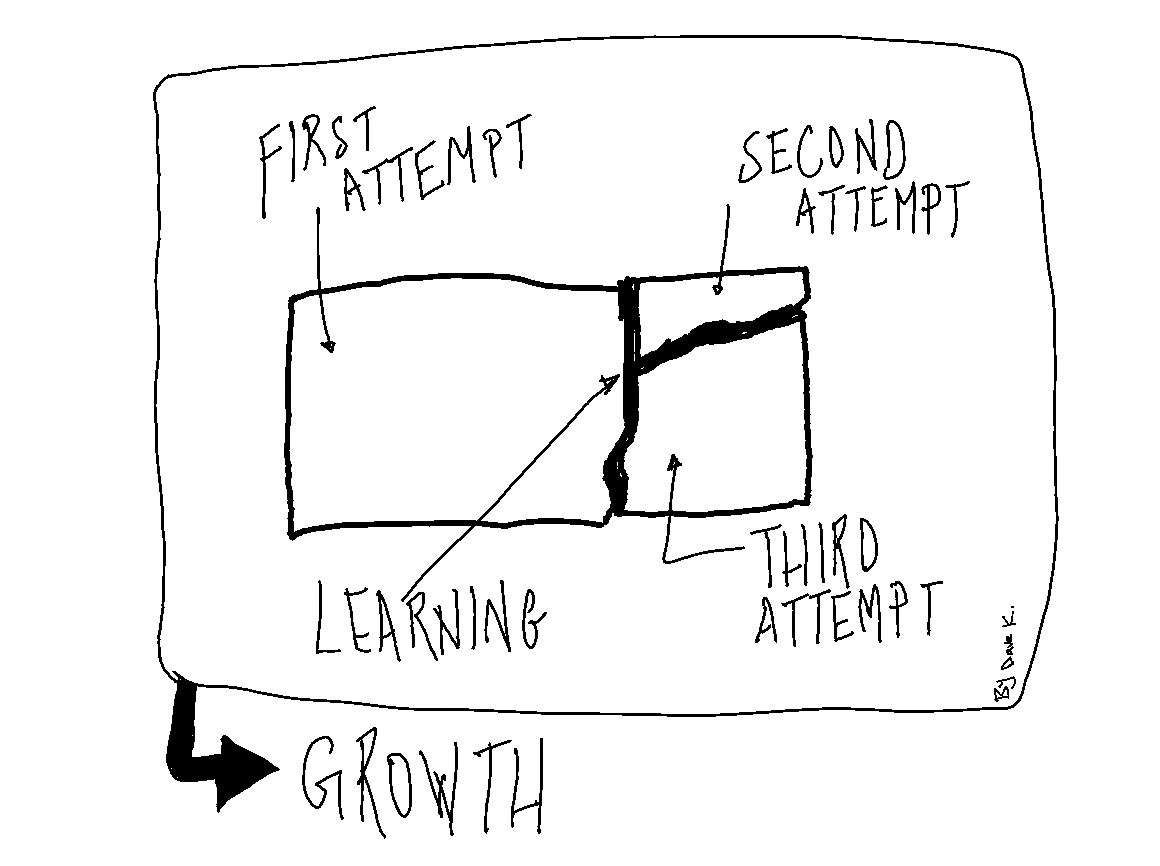
9. Omoiyari
Show consideration for others. Self-study can begin with a selfish act, but it doesn’t have to end with that.
Many CISSP holders and instructors have helped me to achieve what I wanted. They didn’t owe anything. But they spend time sharing their idea of success.
Today, I am continuing the chain with my work on Dave On Cyber.
Luke Ahmed put it best. Keep our flame alive.
I give the flame to you now.

10. Mottainai
Don’t waste what is valuable.
Many skills that were relevant a decade ago are now becoming outdated. Many infrastructure technologies are migrating due to cloud and A.I. It doesn’t mean what you have learnt is waste.
Never throw your skills away. Instead, learn to reuse and integrate to learn new skills.
–
Japanese concepts and their deep meaning are profound. It’s more than just studying for certifications. It applies to all aspects of life. However, it’s easy to forget concepts without strong roots.


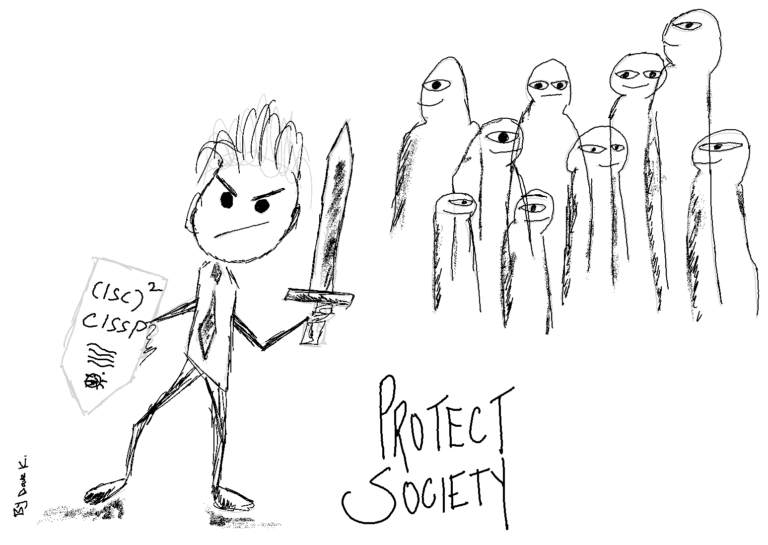

Great article, I love it
Thanks